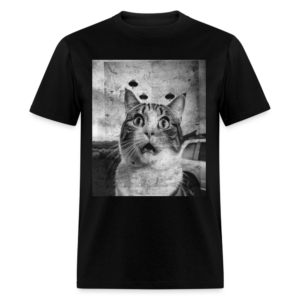Your cart is currently empty!
Phish: The Groundbreaking Technique That Revolutionized Music and Inspired Generations
·
Free shipping over $50 for the month of April using code aprilship
When it comes to boundary-pushing bands, Phish stands at the top of the mountain. The group has been an enigma and a beacon of creativity for music lovers around the world, crafting a sound that is all their own while influencing generations of musicians across genres. With their complex compositions, eclectic influences, and unrivaled improvisational prowess, Phish has left an indelible mark on the music scene. Let’s dive into what made Phish so groundbreaking, how their technique changed the game, who tried to mimic their style, and how their legacy still resonates in music today.
The Birth of Phish’s Unique Sound
Formed in 1983 at the University of Vermont by Trey Anastasio, Mike Gordon, Page McConnell, and Jon Fishman, Phish quickly became known for their freewheeling, genre-blending style that pushed the limits of what rock, jazz, funk, and bluegrass could be. From the outset, Phish was not just another rock band—they were a musical laboratory, constantly experimenting with sounds, textures, and forms.
What set Phish apart from their contemporaries was their fearlessness in blending seemingly disparate elements into one cohesive experience. They weren’t content with staying within the confines of traditional song structures. Instead, they embraced extended jams, complex rhythms, and spontaneous improvisation. Their unique approach to music-making created an ever-evolving soundscape that was both unpredictable and electrifying.
The Power of Improvisation: Phish’s Secret Weapon
One of Phish’s most groundbreaking techniques was their use of improvisation, and it’s what really set them apart from many of their peers in the 1990s and beyond. While many bands would stick to the formula of rehearsed setlists and predictable solos, Phish took it to the next level. Their live shows were famously unpredictable, with songs morphing into new, uncharted territory. For Phish, no two shows were ever the same, and the real magic happened when they went off-script.
What made their improvisational jams so remarkable was their ability to weave together a deep musical conversation between all four members. Each member of Phish brought something different to the table. Trey Anastasio’s virtuosic guitar work, combined with Page McConnell’s keyboard wizardry, Mike Gordon’s bass lines, and Jon Fishman’s drumming, created a unique synergy that allowed them to communicate through music in real time. The chemistry was undeniable, and their live performances were often a masterclass in group improvisation.
Phish’s improvisational style also drew heavily from jazz, with its emphasis on spontaneity and interaction between the musicians. But what Phish did was take that jazz sensibility and infuse it with the energy and drive of rock. The result was a unique blend that was instantly recognizable.
The Influence of Phish: Who Tried to Mimic It?
Phish’s rise to prominence in the ’90s didn’t go unnoticed. Their groundbreaking techniques inspired a whole wave of bands who sought to mimic their unique approach to improvisation, extended jams, and genre fusion. The influence of Phish can be felt in the jam band scene, which grew exponentially during the ’90s and into the 2000s. Bands like the Dave Matthews Band, Widespread Panic, and the String Cheese Incident all owe a great deal to Phish’s influence in terms of their live shows and musical experimentation.
But it wasn’t just jam bands who sought to mimic Phish’s approach. The rock world also felt the ripples of Phish’s impact. Artists like Radiohead, The Flaming Lips, and even the Red Hot Chili Peppers took inspiration from Phish’s ability to mix complex musical ideas with a playful, experimental spirit. These bands recognized the power of live performances, where the interaction between the musicians could transcend the constraints of a recorded track and create something truly dynamic.
Even in the world of electronic music, Phish’s influence can be felt. The improvisational, jam-heavy nature of their shows became a model for the more experimental side of electronic music, where DJs and producers aim to craft live sets that feel fresh and spontaneous, much like Phish’s legendary concerts.
Phish’s Legacy: Shaping the Future of Music
Phish’s impact on the music world continues to reverberate to this day. Their ability to stay true to their roots while constantly evolving their sound set the stage for future artists and bands to break free from traditional genres and experiment with different sonic textures. They showed musicians everywhere that it was okay to take risks and let the music evolve in real-time.
In the 2000s, as many rock bands leaned heavily into studio production and pre-programmed sounds, Phish stayed true to their roots by keeping live performances at the center of their artistic mission. Their influence helped ensure that improvisation remained a core element of live rock music, even as the landscape of popular music shifted.
More than that, Phish’s commitment to their fanbase has set a precedent for how bands interact with their audience. They have one of the most dedicated followings in all of music, and their live shows often feel like a communal experience, with fans reveling in the unpredictability of each performance. Phish helped to create a live music scene where the fans are just as much a part of the show as the band itself.
Phish’s Technique: Innovation in the Moment
One of the key aspects of Phish’s groundbreaking style was their ability to innovate in the moment. A Phish concert isn’t just a series of songs; it’s a journey. The band would often extend a song into uncharted territories, blending different genres and influences with each note. These extended jams weren’t just improvisations for the sake of improvisation; they were carefully crafted, weaving a tapestry of musical ideas that could range from dissonant chaos to harmonic bliss.
Their technique of seamlessly shifting between different time signatures, changing keys on a dime, and layering complex rhythms became their signature. Phish’s music never felt rigid—everything was fluid, organic, and driven by the band’s collective energy. Their ability to transition from one musical idea to the next without losing momentum was a testament to their technical skill and deep understanding of music theory.
But it wasn’t just about showing off technical prowess. Phish had a playful, almost childlike approach to music, constantly surprising both their fans and each other. Whether they were diving into a bluegrass breakdown, a funk groove, or a full-on rock anthem, Phish always kept the energy alive with their infectious enthusiasm.
Phish’s Legacy Lives On
Today, Phish continues to be an inspiration to countless musicians. Their influence can be heard in the music of artists who share their spirit of adventure and creativity. From jam bands to experimental rock to modern electronic acts, Phish has left an enduring imprint on how musicians approach live performance and songwriting.
Their continued success and unwavering commitment to their craft show that their approach to music wasn’t just a passing trend—it was a new way of thinking about what music could be. Phish showed us that the heart of music isn’t just in the notes you play, but in the freedom you allow yourself to create and explore.
In the end, Phish’s influence on music is undeniable. From their groundbreaking improvisation techniques to their ability to inspire future generations of musicians, Phish has changed the way we think about live performance, musical experimentation, and what it means to be truly free in the world of music.
Vintage Welcome to Philly Philly Unisex Classic T-Shirt
Get ready to rock with the Vintage ‘Welcome to Philly’ Concert Music Event Unisex Classic T-Shirt! Perfect for concert-goers who know Philly’s got the best vibes—just don’t forget your dancing shoes!
-

Hungry and Humble Football Player Flapping Arms Touchdown Celebration Unisex Classic T-Shirt #philly
$19.99 Select options This product has multiple variants. The options may be chosen on the product page -

Africatown in Philly Phrase Unisex Classic T-Shirt
$13.99 Select options This product has multiple variants. The options may be chosen on the product page -

Vintage Funny Cat Selfie UFO Alien Invasion Unisex Classic T-Shirt
$13.99 Select options This product has multiple variants. The options may be chosen on the product page -

Vintage Philly Underdogs German Shepherds Unisex Classic T-Shirt
$9.99 Select options This product has multiple variants. The options may be chosen on the product page -

Voxel Art I Luv Tech Unisex Classic T-Shirt
$19.99 Select options This product has multiple variants. The options may be chosen on the product page
————————————————
We use AI GPT Chatbots to help with our content and may get some things wrong.
————————————————-



 Why We Love PinkPantheress’s Unique Production Style: The Future of Music Vibes
Why We Love PinkPantheress’s Unique Production Style: The Future of Music Vibes Why Are Oceans Salty But Rivers Fresh? The Secret to Earth’s Survival
Why Are Oceans Salty But Rivers Fresh? The Secret to Earth’s Survival 





